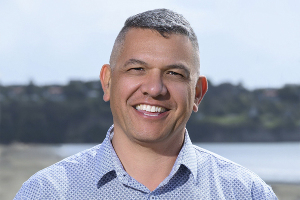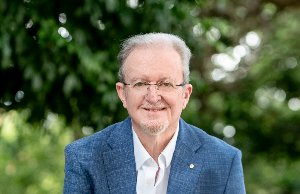
For the first time in years, the numbers for buying a house make sense again, but first home buyers are under-estimating their own horsepower.
Many have far more borrowing capacity then they realise and have been financially ready to buy for years, but have convinced themselves otherwise, Campbell Hastie of Campbell Hastie Mortgages says.
He had one client who spent six years building up their deposit – from 10% to 20% to 30%, and finally to 35% before they felt “ready” to buy a $900,000 house.
What they should have done, he says, was buy that same house five years earlier with half the deposit and made that extra money through capital growth instead of saving it the hard way.
“The real issue isn't financial readiness – it's psychological readiness. When someone tells me they don't know if they're ready, what they're saying is they don't know if they're ready to be judged by the bank.
“They're scared to find out what the result might be. The hardest thing to put in front of yourself is a mirror.”
Hastie, writing on Linked In, says what he sees all the time is that people underestimate their own horsepower. Many first-time buyers worried about their prospects have far more borrowing capacity than they realise.
“Some could have purchased years ago if they'd just had the confidence to find out where they stood.”
Variables shift dramatically
He says when people sit down and crunch what they're paying in rent versus what a mortgage would cost them, they're realising that whilst the mortgage payment might be higher, at least some of that money is going back into their own pocket rather than their landlord's.
“Three or four years ago, this conversation would have been different - house prices were rocketing away from people faster than they could save, and interest rates were climbing alongside them.
“It was expensive buying an expensive house with expensive money – a triple whammy that made homeownership feel impossible for most first-time buyers.”
But the variables have shifted dramatically. Prices have bottomed out, interest rates have come down to reasonable levels, and suddenly, people are looking at their situations thinking, "actually, I think my numbers might work here”, Hastie says.
“What first-time buyers need to understand from advisers is that these market conditions are cyclical.”
Market sweet spot appears
This window of opportunity will eventually close, and when it does, first-time buyers will be back to moaning about how impossible it all is, just like their parents will be telling them how lucky they were to get in when they did.
Hastie says he has been watching this trend emerge over the past six to 12 months.
It's not just first-time buyers either – existing homeowners are also taking advantage of the same conditions to trade up.
“The difference is that what you get now is about 10% cheaper and 20% better than it was a couple of years ago. Better location, more bedrooms, better school zones – that sort of thing. In 2022, you were paying 20% more for maybe 10% better, which was terrible value overall.”
The opportunity window
Despite prices and interest rates being more favourable, sales volumes haven't responded as dramatically as expected, but there is a sweet spot in the market that's creating as good an opportunity as ever to get in, and first-time buyers can sense it.
But there's hesitancy too, Hastie says. “The world feels uncertain – there's talk of Trump, wars, recession, job security concerns, and people wondering if interest rates might fall even further.
These are all valid concerns, but they're also the same concerns that could keep first home buyers waiting on the sidelines indefinitely.”
His message to first-time buyers is if they are genuinely interested in homeownership, they should stop assuming they're not ready and find out where they actually stand.
“The worst thing that can happen is they might discover they need to save a bit more or improve their financial position – but at least they will know what they are working towards instead of just hoping they will somehow know when they are ready. The opportunity is there.”




Comments
No comments yet.
Sign In to add your comment